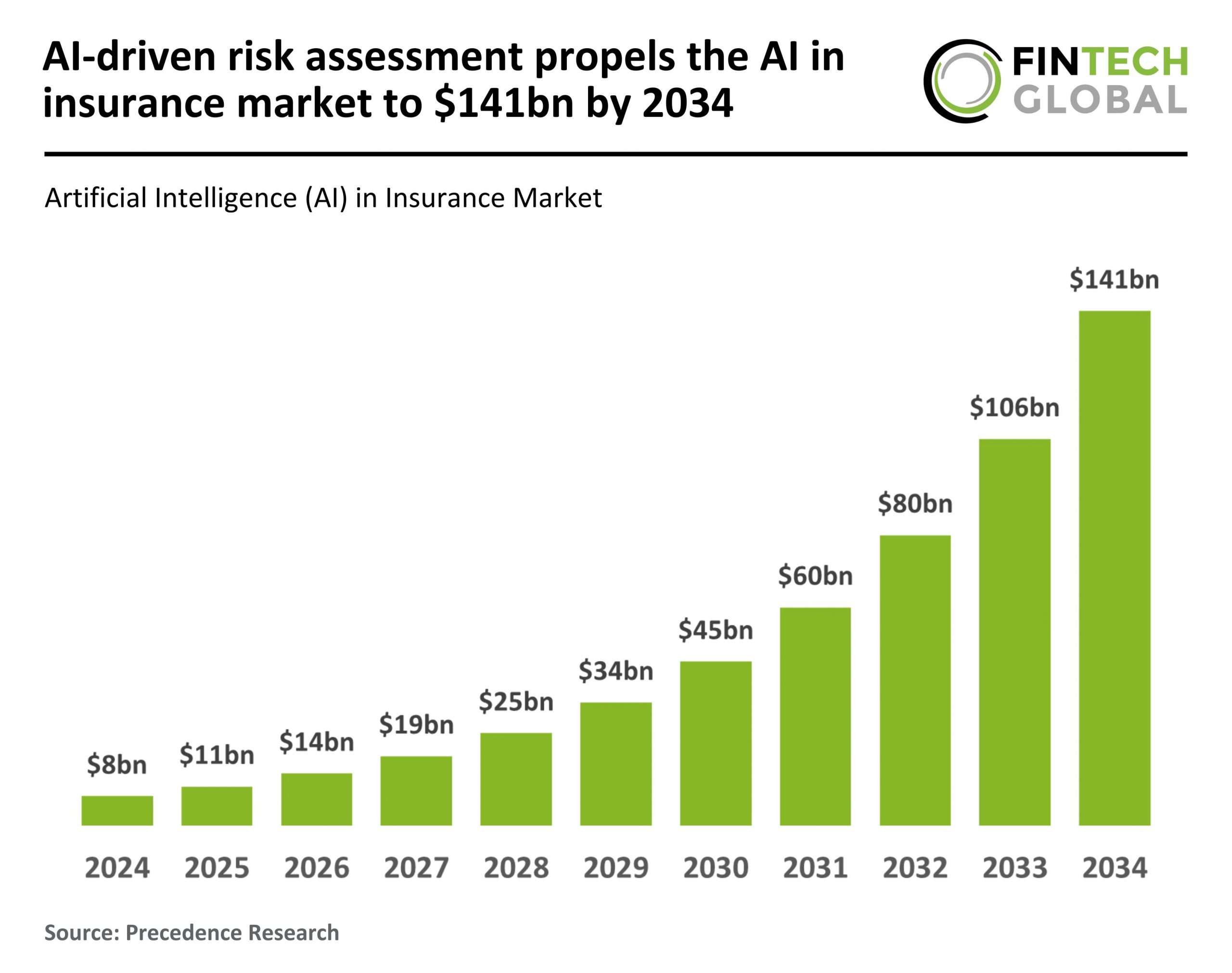AI-Driven Risk Assessment Set to Propel Insurance Market to $141 Billion by 2034
The AI in insurance market is on the brink of a remarkable transformation, with projections showing a surge from $8.13 billion in 2024 to an impressive $141.44 billion by 2034. This growth is largely attributed to significant investments in AI-driven risk assessment and automation technologies.
Transformative Impact of AI on the Insurance Sector
Artificial Intelligence (AI) is revolutionizing various facets of the insurance industry, including underwriting, claims processing, and fraud detection. As more insurers integrate AI technologies, they are not only improving productivity but also reducing operational costs, which are anticipated to decline by 40% by 2030.
Enhancements in Underwriting and Claims Processing
- Underwriting: Traditional methods are being replaced by AI-powered data analytics, enabling quicker and more accurate risk evaluations.
- Claims Processing: Automation driven by AI is expediting settlement processes and minimizing fraudulent claims, while enhancing customer interactions through virtual assistants and chatbots.
According to Precedence Research, the incorporation of AI is expected to significantly improve productivity and streamline operations across the insurance landscape.
Consumer Demand for Personalization in Insurance Services
There is a growing trend towards AI-driven personalization in insurance services, with studies indicating that 80% of consumers prefer tailored insurance offerings. Insurers are increasingly investing in technologies that facilitate personalized policies, driven by advancements in cloud computing and machine learning.
Challenges and Opportunities in AI Adoption
- Data Privacy: As insurers adopt AI, challenges related to data privacy and security remain critical, given the sensitive nature of customer information.
- Regulatory Compliance: Insurers must navigate stringent regulations while implementing AI solutions.
Despite these challenges, AI presents vast opportunities for insurers to customize their offerings based on behavioral analytics, allowing clients to pay for coverage that meets their specific needs.
Conclusion: Navigating the Future with AI
The future of the insurance industry is closely intertwined with the advancements in AI technology. Firms that adopt a comprehensive digital strategy will be better positioned to thrive in this evolving landscape. As AI continues to reshape the sector, staying informed about the latest trends and technologies will be essential for insurers aiming to meet the changing demands of consumers.
For more insights on the future of AI in the insurance market, visit our insights page or check out Forbes for expert opinions.







